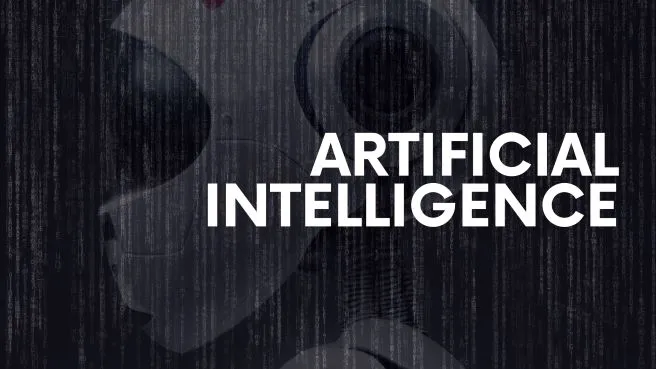ChatGPT IQ Score: Join the Quest to Decipher AI Intelligence Quotient Scores - A Groundbreaking Discovery Impacting Human Knowledge Awaits!
Published at: 20 March, 2023 by Brain's Quotient

In this article, we will explore ...
- Intro
- Undestanding ChatGPT
- Nature of IQ scores
- Evaluate ChatGPT's Intelligence
- Assign IQ score to ChatGPT
- Conclusion
- Summary
- References
Introduction
Artificial intelligence has come a long way in recent years, with advanced AI systems like ChatGPT becoming increasingly prevalent in various aspects of our lives. These AI models have shown the ability to process and generate human-like responses, but can we quantify their intelligence in terms of a traditional human metric, like an IQ score? In this article, we will delve into the concept of ChatGPT's IQ and explore the feasibility of assigning such a value.
Understanding ChatGPT
ChatGPT is a state-of-the-art AI language model developed by OpenAI, based on the GPT-4 architecture. It is designed to generate human-like responses in text form and can engage in conversations, answer questions, and provide information on a variety of topics. Despite its impressive capabilities, it is crucial to remember that ChatGPT is ultimately a machine learning model and not a human being. Thus, comparing its intelligence to human intelligence using an IQ score may not be entirely appropriate.
The Nature of IQ Scores
Intelligence Quotient (IQ) is a measure used to assess human intelligence, derived from standardized tests that evaluate various cognitive abilities such as memory, problem-solving, and logical reasoning. The average human IQ score is set at 100, with a standard deviation of 15. However, measuring an AI's intelligence using an IQ score can be challenging, as it was not designed for machines, and AI may possess different strengths and weaknesses than humans.
Evaluating ChatGPT's "Intelligence"
Given that ChatGPT is an AI language model, it would be more appropriate to evaluate its performance in terms of natural language understanding and generation, rather than using an IQ score designed for humans. Some metrics that could be used to measure ChatGPT's performance include:
- Accuracy: Evaluating how accurately ChatGPT can respond to queries or generate relevant information.
- Consistency: Measuring the consistency of ChatGPT's responses in maintaining context and conversation flow.
- Fluency: Assessing how well ChatGPT can generate grammatically correct and coherent responses.
- Comprehension: Examining ChatGPT's ability to understand complex questions and generate meaningful answers.
Assigning an IQ Score to ChatGPT
Though it is challenging to assign an IQ score to ChatGPT due to the differences in human and AI intelligence, some researchers have attempted to evaluate AI performance using IQ-like tests. In these scenarios, ChatGPT and similar AI models tend to perform exceptionally well in areas like pattern recognition, problem-solving, and logical reasoning. However, they may struggle in areas where human intuition, creativity, and emotional intelligence are required.
Conclusion
While it may be tempting to assign an IQ score to AI models like ChatGPT, it is essential to recognize the limitations and differences between human and AI intelligence. Instead of focusing on a single metric like IQ, it is more appropriate to evaluate AI performance using a variety of relevant criteria that can capture their unique abilities and limitations. As AI continues to advance, we may need to develop new metrics and benchmarks to better understand and measure their intelligence.
Summary
- ChatGPT is an AI language model based on OpenAI's GPT-(N) architecture. N = number.
- IQ scores are designed for assessing human intelligence and may not be appropriate for AI models.
- Evaluating AI performance should focus on natural language understanding and generation.
- Potential metrics for evaluating ChatGPT include accuracy, consistency, fluency, and comprehension.
- Assigning an IQ score to ChatGPT is challenging due to differences in human and AI intelligence.
- AI models like ChatGPT may excel in pattern recognition and logical reasoning but struggle with creativity and emotional intelligence.
- Developing new benchmarks and metrics for AI intelligence may be necessary as AI continues to advance.
References
GPT-4 - OpenAI.com
ChatGPT has an IQ of 83, yet it’s coming for our jobs. What does that say about the work we do? - fastcompany.com
Radford, A., Narasimhan, K., Salimans, T., & Sutskever, I. (2018). Improving Language Understanding by Generative Pre-Training. OpenAI
Brown, T. B., Mann, B., Ryder, N., Subbiah, M., Kaplan, J., Dhariwal, P., ... & Agarwal, S. (2020). Language Models are Few-Shot Learners. arXiv preprint arXiv:2005.14165.
Hernández-Orallo, J. (2017). Evaluation in artificial intelligence: From task-oriented to ability-oriented measurement. Artificial Intelligence Review, 48(3), 397-447.
